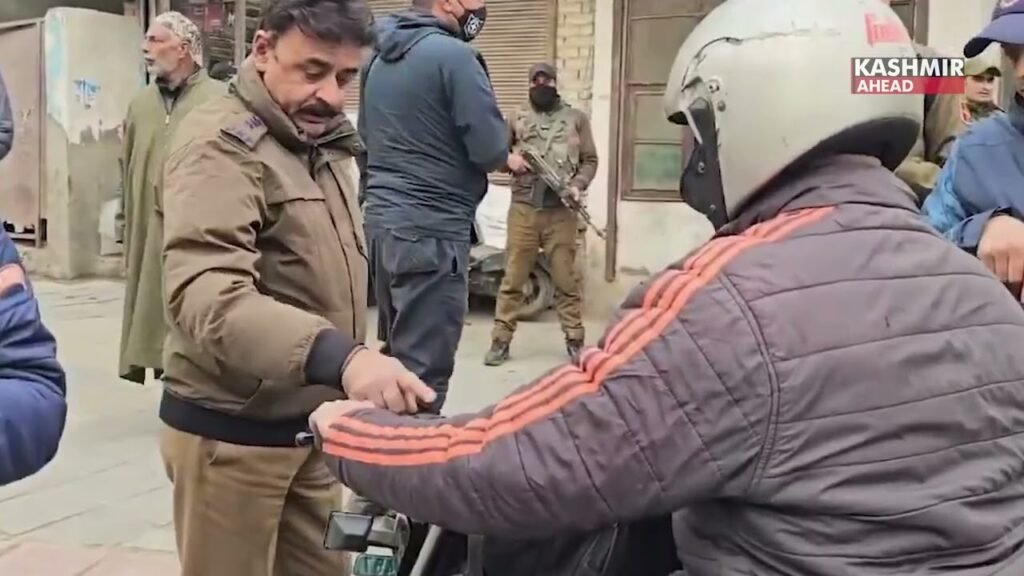In Srinagar (J&K), the issue of minor driving has become an increasingly pressing concern. Over the past few years, there has been a noticeable shift in the public discourse surrounding this matter, especially in light of growing road accidents involving young riders and drivers. The societal trend of handing over two-wheelers or even four-wheelers to minors is not new, but it has gained more attention in recent times due to its safety implications and legal consequences. In many cases, parents, perhaps unknowingly, have encouraged or turned a blind eye to this practice, viewing it as a step towards greater independence for their children. However, there is a rising awareness that this practice is not only hazardous but also against the law. The administration and law enforcement agencies in Srinagar have started to take this issue more seriously. Checkposts have been set up across various regions, especially in urban areas like Srinagar and Jammu, where the police routinely stop vehicles to ensure that the drivers are properly licensed and adhering to traffic regulations. These efforts are particularly visible during peak hours, when police officers are stationed on the roads at various times of day, even late into the evening. The sight of police officers working tirelessly at these checkposts has become a daily reality for many residents. The reality, however, is that they are playing a crucial role in protecting lives and ensuring that road safety laws are followed, particularly when it comes to minors behind the wheel. One of the critical messages that is slowly but surely making its way into public consciousness is that the responsibility for road safety doesn’t fall solely on the shoulders of the driver. It’s equally important for parents, guardians, and the community at large to take accountability for allowing underage individuals to operate motor vehicles. The police’s increased vigilance and frequent stop-checks are not just about enforcing traffic laws—they are about raising awareness. The clear message being communicated is that it’s not just the rider who must wear a helmet; everyone who is on the vehicle, including passengers, must ensure their safety by wearing one as well. It’s a simple yet effective measure that could save lives in the event of an accident. At around 9:30 PM, several police officers manning a checkpost on a busy street in Srinagar. They stop vehicles, check licenses, and ensure that those on the roads were following the rules. The dedication and hard work of these officers were evident as they continued their duties late into the night. It made us reflect on the broader purpose of their work—not just to enforce the law, but to serve as guardians of public safety. Their goal is to educate people, particularly parents, about the dangers of letting minors drive. The impact of minor driving is far-reaching. Beyond the immediate danger to the child behind the wheel, accidents involving minors can lead to devastating consequences, both for the individual and for the community. In a region like J&K, where road conditions can be challenging due to geographical features and climatic conditions, the risks associated with unlicensed and underage driving are even greater. There is a real need for the society to take a collective stand on this issue—ensuring that vehicles are not handed over to children before they are of legal age and are fully capable of understanding the risks of driving. The ongoing efforts of law enforcement in J&K to curb the practice of minor driving are commendable.Parents, guardians, and the community at large must understand that allowing minors to drive is not just an innocent act of granting freedom, but a decision that could have life-altering consequences. It is time to recognise the importance of road safety education, stricter enforcement of laws, and a cultural shift towards responsible driving in Jammu and Kashmir.
Raising awareness on safe driving in Srinagar
Keep Reading
Add A Comment
Services
- About
- Contact
- Video
- Newsletters
- Sponsored News
Subscribe to Updates
Get the latest creative news from FooBar about art, design and business.
© 2025 Kashmirahead. Designed by Creative Milestone..



